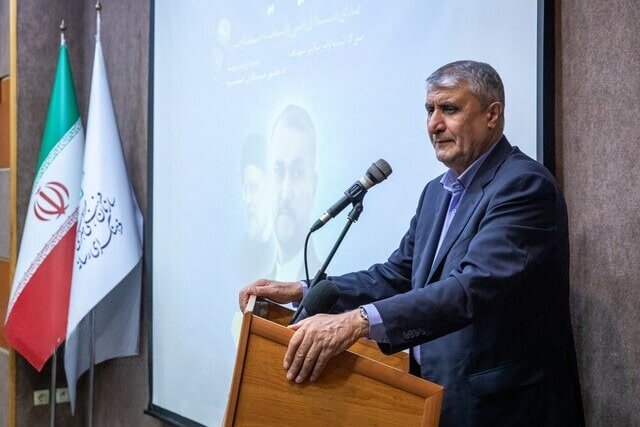Tehran – Mohammad Eslami, head of Iran’s Atomic Energy Organization (AEOI), reaffirms the Islamic Republic’s unwavering commitment to chart its own course in the face of foreign pressures, arguing that Iran’s nuclear and scientific trajectory is always determined by the international leadership of its citizens.
On Saturday, Eslami said, “We will move forward based on our purposes and national interests. We cannot impose a will on the Islamic Republic.” He emphasized that the identity and fundamental values of the Islamic Republic serve as a guide to the country’s decision-making process, particularly in strategic sectors such as nuclear energy and advanced technology.
“One of the most important consequences of the Islamic Revolution was Iran’s ability to make sovereignty decisions and pursue its development without succumbing to external demands,” Eslami added.
Iran’s nuclear chief continues to emphasize the country’s growth potential in industrial science and technology, saying that Iran is currently stretching shoulders with technologically advanced countries despite enormous financial investments. “We achieved these milestones by prioritizing independence and innovation,” he said.
The statement comes amid continuing indirect negotiations between Tehran and Washington over Iran’s nuclear program. Five rounds of lectures have been held in Rome and Muscat since April.
Iranian negotiators have repeatedly criticized the US for changing their stance during the talks, claiming that such contradictions undermines trust and complicates the diplomatic process. “Contradictory statements do not encourage diplomacy,” an Iranian official said in a recent briefing.
Islamic revolution leader Ayatollah Seiyed Ali Khamenei also weighed it earlier this week, denying Washington’s request that Iran cease peaceful uranium enrichment activities. “It is totally wrong for the US to expect Iran to legally stop our rights. No one in the Islamic Republic is waiting for permission from anyone,” Ayatollah Khamenei reiterated that Iran’s policies and methods are rooted in the agenda of sovereignty.
Tehran argues that its uranium enrichment activities fall within the framework of the signatories, the Non-Proliferation Treaty (NPT). Iranian officials have argued that the country will not waive its right to peaceful nuclear technology despite increasing Western pressure.
As diplomatic efforts continue, Iran remains in its position. State sovereignty, strategic independence and scientific advances have not increased due to negotiation.

